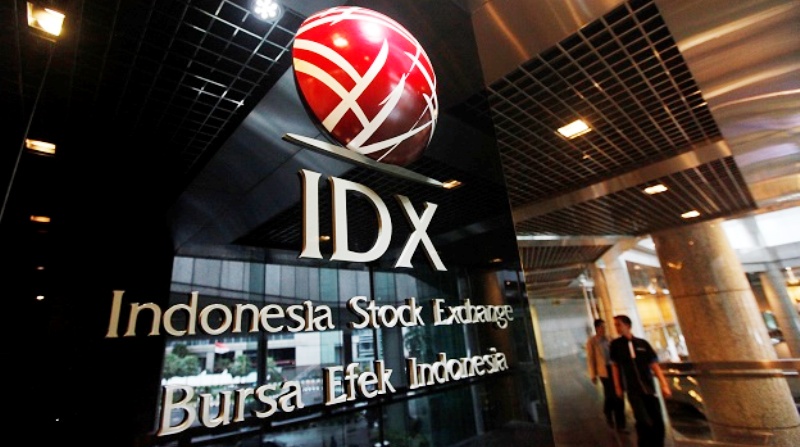Rapid economic development in Indonesia has given birth to a number of technology companies developing new innovations with a fairly high level of productivity and growth. These companies, often known as New Economy companies, require continuous capital needs in the long run.
One way New Economy companies meet capital needs is by selling their shares to the public.
The sale of shares to the public can result in the switch of control of the company to the party that has the most shares. This is known as one share one vote (OSOV). If this happens, the founder of the company will lose control which can cause the company not to run in accordance to to its original vision and mission.
Against this background, the controllers usually apply shares with multiple voting rights, namely the classification of shares where one share grants more than one voting right to shareholders who meet the requirements. The release of shares to the public risks the devolution of shares owned by the controller.
If the controlling shareholder wants to keep his shares, they must deposit capital in accordance with the portion of the shares that will be retained so that the control of the company does not transfer to other parties. One option that can be used by the founder is to issue multiple voting shares (MVS).
The application of MVS is commonly applied on several stock markets in the world. The majority of these systems are implemented by companies engaged in the innovation-based technology or e-commerce sector.
Implementation of MVS in Indonesia
In Indonesia, Law No. 40 of 2007 on Limited Liability Companies has opened up space for the articles of association of a company to issue one or more stock classifications. Each share contained in the same classification grants the same rights to its holder. Based on Article 53 of the Limited Liability Company Law, among the classification of shares issued based on the articles of association one of them must be designated as ordinary shares.
The provisions of Article 84 of the Limited Liability Company Law also state that the articles of association can determine the voting rights contained in one share. However, in the explanation of Article 84 there is only an explanation of stocks without voting rights.
In addition, the Limited Liability Company Law also states that voting rights do not apply, except to:
- shares of the Company controlled by the Company itself;
- shares of the Company’s parent company controlled by its subsidiaries directly or indirectly; or
- shares of the Company controlled by other Companies whose shares are directly or indirectly owned by the Company.
In December 2021, the Financial Services Authority (OJK) has issued the OJK Regulation Number 22 /POJK.04/2021 on the Application of Stock Classification with Multiple Voting Rights (SHSM) or Multiple Voting Shares (MVS). Article 1 Number 1 of this OJK Regulation regulates the application of shares with multiple voting rights, namely the classification of shares where one share gives more than one voting right to shareholders who meet the requirements.
The existence of the OJK Regulation has opened opportunities for companies, especially technology companies with various innovations to make stock offerings on the stock markets while providing protection to the company’s mission vision.
However, before making such a step, the company must first provide arrangements regarding the implementation of the articles of association that apply MVS shares by containing arrangements regarding;
- classification of shares issued;
- provisions regarding parties who can become MVS shareholders;
- ratio of MVS stock voting rights to common stock voting rights in accordance with existing provisions;
- restrictions on the voting ownership of MVS shareholders;
- voting rights MVS shares have voting rights with common stock voting rights in certain events in the GMS;
- conditions that cause MVS shares to turn into common stock before the time period runs out
- the voting treatment is different from that of MVS shareholders.
Not only provide requirements regarding what is contained in the articles of association, the OJK Regulation provides requirements for MVS shareholders, namely:
- MVS shareholders for the first time are parties stipulated in the GMS and contained in the prospectus;
- MVS Shareholders after the public offering are parties that have been disclosed in the prospectus in the framework of the public offering as the party who can own MVS shares;
- members of the board of directors who have a significant contribution to the growth of the business or business and have obtained independent shareholder approval in the GMS.
The OJK Regulation on the Implementation of Stock Classification with Multiple Voting Rights (SHSM) or Multiple Voting Shares (MVS) basically provides an opportunity for controllers to protect the company’s vision and mission by introducing MVS shares in Indonesia. To issue MVS shares, the company must be able to meet the following criteria;
- using technology to create product innovations that increase productivity and economic growth and have broad social benefits;
- have shareholders who have a significant contribution in the use of technology.
- the total assets of the company are at least Rp2,000,000,000,000.00 (two trillion rupiah);
- have carried out operational activities for at least three years before submitting a Registration Statement;
- the annual compound growth rate of total assets over the past three years is at least 20%; and
- the annual compound growth rate of revenue over the past three years is at least 30% (thirty percent);
- is an Issuer that has never conducted a Public Offering of Equity Securities; and
- other criteria are set by the Financial Services Authority.
The OJK Regulation on the Application of Stock Classification with Multiple Voting Rights (SHSM) or Multiple Voting Shares (MVS) not only protects the company’s vision and mission but also provides protection to public shareholders.
Author / Contributor:
 | Adhitya Chandra Darmawan, S.H., CLA Senior Associate Contact: Mail : adhitya@siplawfirm.id Phone : +62-21 799 7973 / +62-21 799 7975 |
